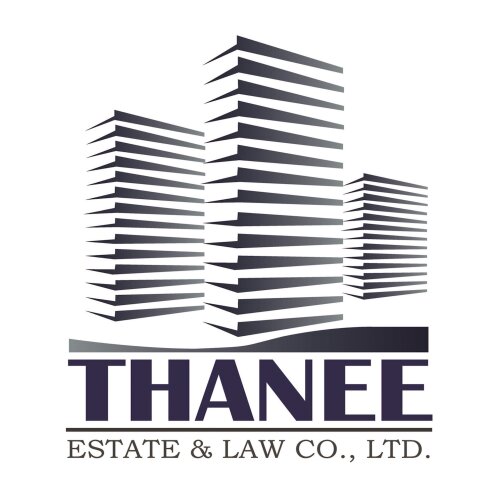Best Land Use & Zoning Lawyers in Thailand
Share your needs with us, get contacted by law firms.
Free. Takes 2 min.
Free Guide to Hiring a Real Estate Lawyer
Or refine your search by selecting a city:
List of the best lawyers in Thailand
Legal guides written by SIAM LEGAL INTERNATIONAL:
- Defamation Laws in Thailand: Criminal Charges and Civil Suits
- The State of Thailand’s Long-Term Resident (LTR) Visa Program in 2025
- The Penalties Of Not Filing Your Income Tax Return As A Foreigner In Thailand
Thailand Land Use & Zoning Legal Articles
Browse our 2 legal articles about Land Use & Zoning in Thailand written by expert lawyers.
- Building Regulations in Thailand: Tips for Property Development
- In the world of property development in Thailand, understanding the local building regulations is absolutely crucial. It can save you from potential legal issues and help ensure a smooth property development process. In this guide, we will walk you through the key aspects of building regulations in Thailand and offer... Read more →
- Land Ownership in Thailand: Title Deeds
- Land ownership in Thailand is not a readily available option for foreign individuals. Foreign companies may have opportunities to own land, particularly through BOI certifications, subject to qualifying business activities and a rigorous application process. Nevertheless, it is still relevant to understand the various title deeds in use in Thailand,... Read more →
About Land Use & Zoning Law in Thailand
Land Use and Zoning laws in Thailand regulate the allocation, utilization, and classification of land resources. These laws are essential for urban planning as they define what types of structures, lands, and activities are permissible in particular areas. The objective is to balance economic development with environmental protection and public interest. These regulations are typically overseen by the Ministry of Interior and local administrative bodies. In an ever-developing country, adherence to these regulations ensures sustainable growth while preserving the cultural and natural heritage.
Why You May Need a Lawyer
There are several scenarios where individuals or businesses may require legal assistance in Land Use & Zoning in Thailand:
- Property Development: Navigating the approvals needed for construction projects requires a deep understanding of zoning regulations.
- Land Disputes: Whether it's encroachment issues or disputes over land boundaries and zoning restrictions, legal help can be crucial.
- Zoning Compliance: Ensuring your project's compliance with all zoning laws to avoid penalties and project delays.
- Rezoning Applications: Changing the zoning classification of your land for different uses involves complex legal procedures.
- Environmental Considerations: Legal advice might be needed to ensure compliance with environmental protection laws associated with land use.
Local Laws Overview
The key aspects of Land Use & Zoning laws in Thailand include:
- City Planning Act: Provides guidelines for the preparation of comprehensive city plans which determine zoning.
- Building Control Act: Governs standards for construction and land development projects.
- Environmental Impact Assessment (EIA): Required for certain types of projects to protect the environment.
- National Land Code: Governs ownership, use, and transfer of land.
- Local Ordinances: Local authorities may have additional rules specific to their areas for zoning and land use.
Frequently Asked Questions
What is the purpose of zoning laws in Thailand?
Zoning laws are designed to regulate land use, promote organized urban development, and ensure compatibility of land use with environmental and community standards.
Can I change the zoning classification of my land?
Yes, it is possible to apply for rezoning, but the process involves detailed justifications and must be approved by relevant local authorities.
What is an Environmental Impact Assessment (EIA)?
An EIA is a study required for projects that may affect the environment significantly. This assessment is part of the approval process in many zoning and construction projects.
Do zoning regulations vary by region in Thailand?
Yes, local administrations can impose additional zoning rules relevant to their specific regional concerns, supplementing national laws.
How can I verify the zoning status of a piece of land?
You can consult the local land office or municipal office to obtain zoning maps and related information about a specific area.
Are there penalties for non-compliance with zoning regulations?
Yes, penalties can range from fines to orders to cease operations or demolish non-compliant structures.
What role does the Ministry of Interior play in Land Use & Zoning?
The Ministry of Interior oversees urban planning and zoning at a national level and supports local authorities in enforcing these regulations.
Are there specific zoning laws for agricultural lands?
Yes, agricultural lands have specific zoning laws to ensure they are used in a manner that supports agricultural productivity and sustainability.
Can foreigners own land in Thailand?
Foreigners typically cannot own land directly, but there are legal structures, such as long-term leases, that can facilitate land use by foreign nationals.
Is legal assistance necessary for a small construction project?
While not mandatory, obtaining legal assistance can ensure compliance with applicable regulations and prevent future legal issues.
Additional Resources
For further assistance or information on Land Use & Zoning in Thailand, consider contacting the following resources:
- The Ministry of Interior: Manages national urban planning and policy implementation.
- Local Municipal Offices: Provide localized information and regulatory details.
- Land Department: Offers services related to land ownership and boundary clarification.
- Thai Real Estate Association: Offers insights and support in real estate matters, including zoning.
Next Steps
If you need legal assistance in Land Use & Zoning in Thailand, consider the following steps:
- Consult with a lawyer specializing in Thai land law to evaluate your specific situation and legal options.
- Visit local government offices to obtain detailed zoning maps and understand local requirements.
- Engage with local experts or consultants who can provide in-depth advice and support for complex zoning issues.
- Commence necessary legal applications or actions through proper channels with the guidance of your legal advisor.
Understanding and navigating the landscape of Land Use & Zoning in Thailand can be complex, but with the right guidance and resources, it can be managed effectively.
Lawzana helps you find the best lawyers and law firms in Thailand through a curated and pre-screened list of qualified legal professionals. Our platform offers rankings and detailed profiles of attorneys and law firms, allowing you to compare based on practice areas, including Land Use & Zoning, experience, and client feedback.
Each profile includes a description of the firm's areas of practice, client reviews, team members and partners, year of establishment, spoken languages, office locations, contact information, social media presence, and any published articles or resources. Most firms on our platform speak English and are experienced in both local and international legal matters.
Get a quote from top-rated law firms in Thailand — quickly, securely, and without unnecessary hassle.
Disclaimer:
The information provided on this page is for general informational purposes only and does not constitute legal advice. While we strive to ensure the accuracy and relevance of the content, legal information may change over time, and interpretations of the law can vary. You should always consult with a qualified legal professional for advice specific to your situation.
We disclaim all liability for actions taken or not taken based on the content of this page. If you believe any information is incorrect or outdated, please contact us, and we will review and update it where appropriate.
Browse land use & zoning law firms by city in Thailand
Refine your search by selecting a city.

















